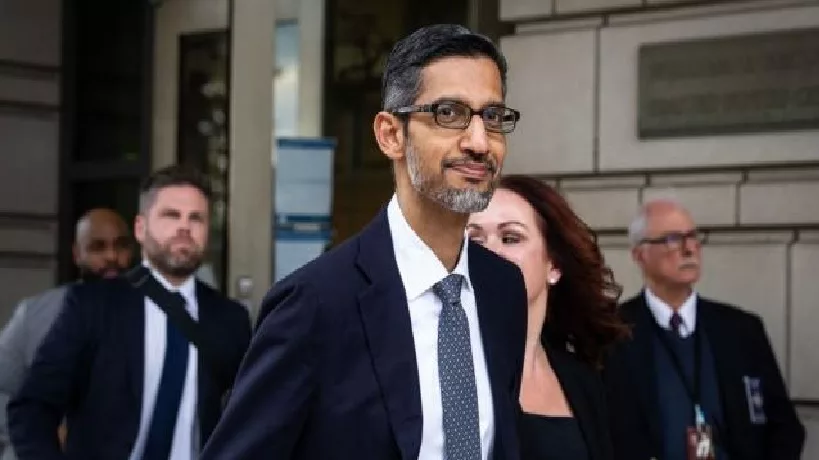Google’s 36 Percent Safari Ad Revenue Share Fuels Legal Debate with Apple. We recently learned that Google sends 36 percent of safari ad revenue to Apple. We looked into the Google-Apple debate.
During the ongoing monopoly case, an expert representing Google disclosed that the tech giant allocates 36% of its advertising revenue from Apple‘s Safari web browser directly to the iPhone maker. This revelation sheds light on the intricate dynamics defining the relationship between these two tech behemoths. It also highlights the connection that has become central to the legal scrutiny surrounding allegations of anti-competitive practices.
Prosecutors argue that the dealings between Google and Apple have potentially resulted in illegal constraints within the digital advertising landscape. As the intricate details of this Google-Apple revenue-sharing arrangement come to the forefront, the courtroom drama intensifies. The court unraveled the complexities of the partnership and its far-reaching implications for the broader tech industry.
Visible Cringe
The lead counsel representing Google exhibited a noticeable reaction, described as a “visible cringe,” when the precise percentage of advertising revenue allocated to Apple was unveiled. This was during the courtroom proceedings, as reported by Bloomberg. This revelation adds a dramatic twist to the high-stakes trial that started in September. This is the case wherein Google is facing off against the US Department of Justice opponent.
Google has consistently asserted that its dominance in online searches comes due to its product’s superiority. However, the recent disclosure of the share of ad revenue directed to Apple raises questions about the intricacies of their collaborative dynamics. The courtroom drama unfolds against a backdrop. Many proceedings are in secrecy, a measure taken to safeguard trade secrets and maintain confidentiality throughout the legal battle.
More Details On The Google-Apple Debate
Testimony at the trial disclosed that Google paid a sum exceeding $26 billion to various entities, including Apple, Samsung, and Mozilla. This substantial expenditure was aimed at securing Google’s position as the default search engine on their respective platforms.
The scale of this financial commitment becomes even more apparent on Wall Street. According to reports, Wall Street analysts estimate that a significant portion of this payment, surpassing $18 billion, went to Apple. The figures underscore the magnitude of Google’s strategic investments in maintaining its search engine dominance. It further unravels the web of financial transactions and partnerships that define the competitive landscape within the tech industry.
Google-Apple Debate: Alphabet Pay Is Evidence
During the trial, University of Chicago professor Kevin Murphy, responsible for divulging the proportion of advertising revenue funneled from Google to Apple through Safari, testified that the substantial financial outlays by Google and its parent company, Alphabet, serve as compelling evidence of the intense competition prevailing in the market. This argument aligns with Google’s stance throughout the legal proceedings.
As the trial approached its conclusion in the imminent days, a procession of key witnesses graced the courtroom, notably including Alphabet chief Sundar Pichai and Microsoft’s top executive, Satya Nadella. Their testimonies and Professor Murphy’s insights contribute to a comprehensive understanding of the intricate dynamics. It also contributes to the competitive forces in the tech industry, shaping the narrative of this high-profile legal battle.
Seeking Penalties
The legal stakes are soaring as prosecutors from the US Department of Justice intensify their pursuit of robust penalties. Their quest for stringent measures against Google reflects a broader push to foster a more open landscape in the industry.
There are huge potential ramifications of a ruling against Google. The implications reverberate throughout the technology sector. While a complete break-up remains uncertain, the trial’s outcome could lead to changes in practices and dynamics.
Judge Amit Mehta, presiding over the proceedings, is anticipated to withhold his ruling until early next year. The timeline underscores the complexity of the case and the meticulous consideration required for a decision that could reshape the competitive landscape. It could ultimately set a precedent for future legal battles in the tech industry. The tech world watches with bated breath as this legal saga unfolds, anticipating the far-reaching implications of the impending judgment.




